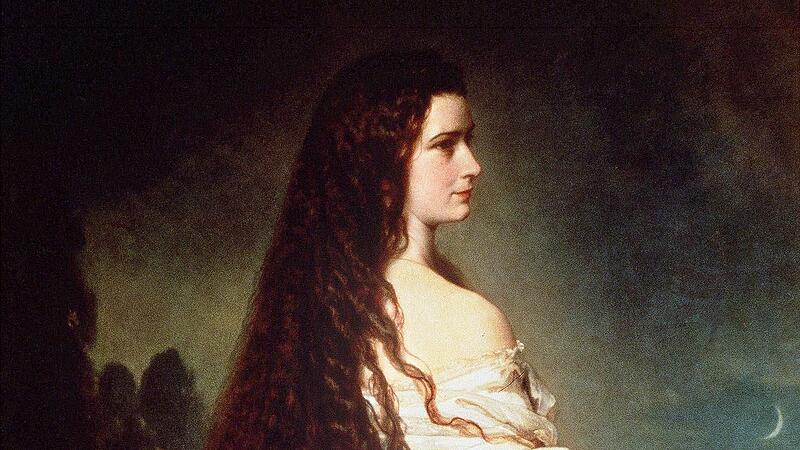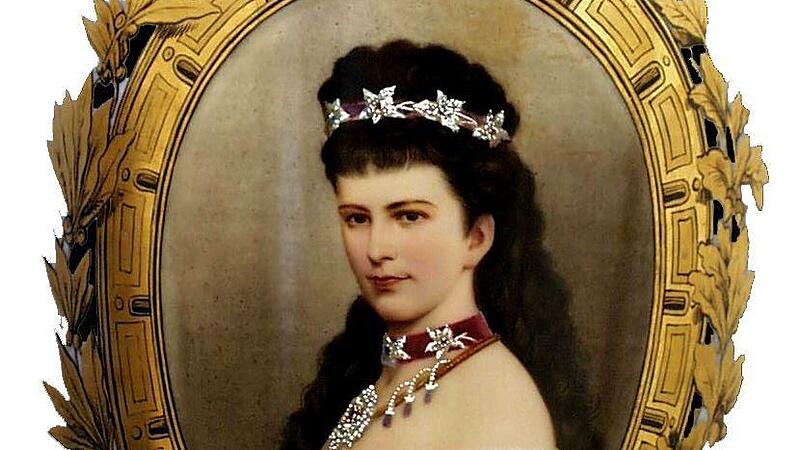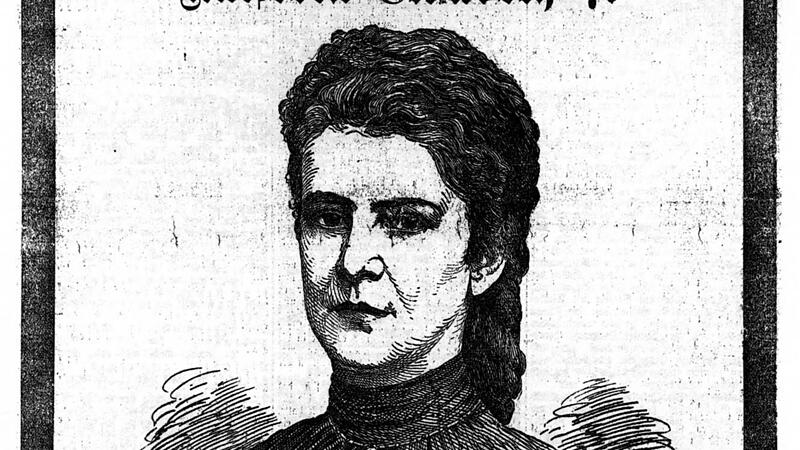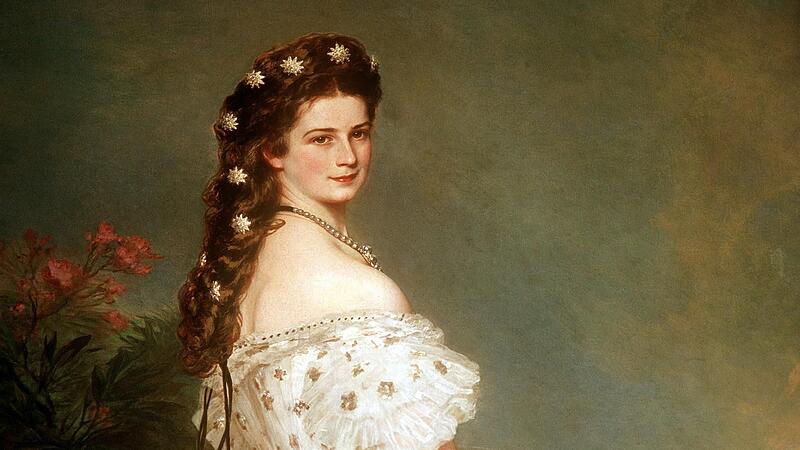Image: dpa


Image: APA

Image: APA
Empress Elisabeth, “Sissi” in the broad-lipped Viennese of Franz Marischka’s film classics and “Sisi” in the nasal Schönbrunnerian of the many new adaptations, is the undisputed star of the Habsburg media. At 172 centimeters, she was significantly taller than her husband, never weighed more than 50 kilos and, with a waist circumference of less than 50 centimeters and her famous long hair, is considered a celebrated beauty icon. But she was not a flawless beauty. Her teeth were crooked and bad. And her skin had become quite wrinkled as she got older – there were no good dentists and no Botox yet.
Dream wedding with Emperor Franz Joseph
In 1853, Emperor Franz Joseph was 23 years old. The dynasty needed an empress. The first search was in Prussia and Saxony. But the emperor spontaneously fell in love with his 15-year-old cousin Elisabeth from the Wittelsbach branch of Palatinate-Zweibrücken. In terms of the tried and tested Habsburg marriage strategies, this was not a brilliant match: the family was politically insignificant and not particularly rich. But on April 24, 1854 they got married. At first there was happiness and contentment everywhere: a young couple, a radiantly beautiful bride, a fairytale wedding!

But the more rural Possenhofen, where Sisi grew up, was a different world from the imperial court. There was no intimacy here. Every menstrual period and every sexual intercourse was recorded. Not too much love joys! This damages fertility! The most important thing was an heir to the throne!
Three children came in quick succession: Sophie in 1855, Gisela in 1856 and the longed-for Crown Prince Rudolph in 1858. After the Hungarian coronation in 1867, another latecomer, Marie Valerie, followed in 1868.
Offended by Emperor Franz Joseph’s infidelities?
From her husband’s perspective, with the birth of the heir to the throne, Sisi had fulfilled her dynastic family duties. But the death of her eldest daughter Sophie in 1857, which she blamed on a strenuous trip to Hungary forced by the courtly environment, had affected her deeply. The family fronts hardened. There were many rumors: weak lungs? Heart disease? Panic attacks? Psychosomatic exhaustion? Imperial infidelity? It is not clear what actually triggered the deep marital crisis. In any case, Sisi was physically healthy. Was she deeply disturbed because she had heard rumors about Franz Joseph’s infidelities?

Image: APA
According to Martina Winkelhofer, Caesar Conte Corti, the first relevant Sisi biographer, deleted the sentence that “Franz Joseph looked too deeply into another woman’s eyes” from the manuscript that was printed in 1930. But it is all too obvious that the emperor had become involved in secret love affairs, which led Elisabeth first to flee in panic to Possenhofen in 1860 and then to a separation from her husband for almost two years: six months in Madeira, then on Corfu and in Venice, most recently in German baths.
Even when Sisi returned to the Viennese court at the end of 1862, she left no doubt that she was no longer interested in a married life. Franz Joseph’s Adjutant General Folliot von Crenneville wrote in his diary: “O the women, the women!!! With and without a crown they have capriciousness…”
Unlimited powers through “ultimatum”
On August 27, 1865, Sisi demanded from Franz Joseph in a famous “ultimatum” absolute powers in everything that affected her personal affairs: both in the upbringing of her children and in the choice of where she stayed and her surroundings. Winkelhofer describes this as the harshest ultimatum ever formulated by a woman in the 19th century. The fact that Franz Joseph accepted it shows the changed balance of power. These were also expressed in the letters: Franz Joseph replaced his first name in the signature with “Your Little”, “Your Mäniken” or “Your Little”, which clearly signaled subordination to his wife.
It is not known whether Sisi disturbed her husband’s relationship with the 16-year-old Anna Nahowski, who began in 1875 and lasted until 1889. However, the less erotic relationship with the already mature Katharina Schratt, which Franz Joseph had begun in 1886, no longer bothered her and was even arranged by her.
Sisi spent huge amounts of money
Unlike the emperor, who was completely undemanding in his private life, Sisi spent the money with open hands. The costs exploded. Her first major trip abroad, the six-month stay in Madeira in 1860, cost the horrendous sum of 188,935 guilders and 8 kreuzers, 3.2 million euros in today’s money. Even if she only traveled to Ischl, it cost at least 100,000 guilders: a special train and her own freight train with 40 tons of luggage, horses, dogs, a separate ship on Lake Traunsee, hotel rent, servants, gifts…
The summer stay in Feldafing and Ischl in 1871 was billed at 136,956 guilders and 12 kreuzers. In 1883 the court treasury paid 172,300 guilders, in 1884 180,000 guilders and in 1885 216,000 guilders. Riding trips cost even more, especially if they went to France, England or Ireland. The ship trips in the Mediterranean and the trips to Turkey, North Africa and the Riviera also made money.
Katrin Unterreiner added up that Elisabeth spent a total of at least 1.7 million guilders, or the equivalent of 30 million euros, on her trips alone. There were also the Hermes Villa in Lainz, the Achilleion on Corfu, the Ischler Marmorschlössl and Gödöllö Castle in Hungary, and of course the servants, social ladies, hairdressers, readers, horses, dogs, clothes and everything that an empress personally needs. The court treasury covered all these costs.
She invested the allowance to which Sisi was entitled, the so-called “donation money”, which was actually intended for her private expenses and was initially set at 100,000 guilders annually and doubled in 1870, in securities. She also put the two million that she received from Emperor Ferdinand’s inheritance in 1875 into savings accounts. As early as 1870 she had a securities portfolio worth 1.2 million guilders. By her death in 1898 it had grown to 10 million guilders or 175 million euros. The two daughters inherited. But there are no usual social provisions in her will: no donations for the poor, sick or other needy. Elisabeth’s heart had become hard. They were not interested in the social problems of their environment.
Sporty and vain
Sisi was an excellent rider, persistent hiker and passable fencer and gymnast. But everything escalated to neurotic madness: her cult of thinness and beauty, her love of traveling, her preference for black, her visits to mental asylums, catacombs and other dark places, her spiritualistic sessions, her worship of Heine and her, in truth, amateurish poetic ambitions, their “cloud-crawling,” as the emperor described it, and, last but not least, their longing for death and their suicidal thoughts.
Franz Joseph said: “Then you’ll go to hell!” Sisi: “Hell is already on earth.”
Sisi refused the roles that were intended for her: she was neither the loving, devoted wife nor the caring mother and certainly not the political representative at her husband’s side. She wanted self-realization, even more so the older she got. Like her much revered poet role model Heinrich Heine, she styled herself as a dissident and republican. She no longer believed in the monarchy, but did not know how she could have existed and distinguished herself without it.

Image: APA
On September 10, 1898, the Empress, accompanied by her lady-in-waiting Irma Sztáray, left the Hotel Beau-Rivage in Geneva at around 1:30 p.m. On the lakeside promenade, the Italian anarchist Luigi Lucheni pounced on her and plunged a sharpened file into her heart. You could hardly see a wound. She probably didn’t notice much either. Her last words were: “What happened to me?”
Dream wedding instead of dream marriage
Two weeks after her wedding to Emperor Franz Joseph on April 24, 1854, Sisi wrote this small, meaningful verse in one of her poems:
I have awakened in a dungeon, with chains on my hand. / And my longing grows stronger, / and freedom! You turned away from me.
—
Two of her children died before her: Sophie (1857) and heir to the throne Rudolf, who was found dead with Mary Vetsera in the bedroom in the Mayerling hunting lodge on January 28, 1889 – it was probably murder and suicide.
In the same year, Sisi was murdered – the emperor’s reaction: “I won’t be spared anything.” The entire monarchy mourned.
To person
Elisabeth: Born in Munich (December 24, 1837) and died in Geneva (September 10, 1898) – she lived in Vienna for a time, but she was not happy here. The emperor and his cousin met and became engaged in Bad Ischl.
My themes
For your saved topics were
new articles found.

info By clicking on the icon you can add the keyword to your topics.
info
By clicking on the icon you open your “my topics” page. They have of 15 keywords saved and would have to remove keywords.
info By clicking on the icon you can remove the keyword from your topics.
Add the topic to your topics.
Source: Nachrichten




